Films with theme "Films about Jews and Judaism", sorted by revenue
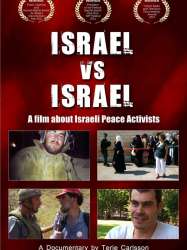
Israel vs Israel (2010)
, 58minutesGenres Documentary
Themes Films set in Africa, Films about religion, Documentary films about law, Documentary films about war, Documentary films about historical events, Documentaire sur une personnalité, Documentary films about politics, Documentary films about religion, Political films, Films about Jews and Judaism
 , 1h31
, 1h31Origin USA
Genres Documentary
Themes Films about religion, Sports films, Baseball films, Documentary films about sports, Documentaire sur une personnalité, Documentary films about religion, Films about Jews and Judaism
Actors Dustin Hoffman
The film was written by Pulitzer Prize winner Ira Berkow, and narrated by actor Dustin Hoffman. It was directed by Peter Miller, a documentary filmmaker known for his previous films A Class Apart, Sacco and Vanzetti, and The Internationale.

The Matchmaker (2010)
, 1h52Directed by Avi Nesher
Origin Israel
Genres Drama
Themes Films about religion, Films about Jews and Judaism
Actors Adir Miller, Eliyahu Yatzpan
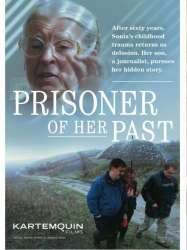
Prisoner of Her Past (2010)
, 57minutesOrigin USA
Genres Documentary
Themes Medical-themed films, Films about racism, Films about religion, Documentary films about racism, Documentary films about law, Documentary films about war, Documentary films about historical events, Documentaire sur une personnalité, Documentary films about religion, Documentary films about health care, Films about psychiatry, Films about disabilities, Political films, Films about Jews and Judaism, Documentary films about World War II
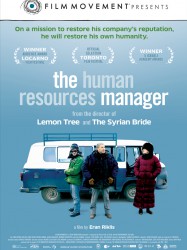
The Human Resources Manager (2010)
, 1h43Directed by Eran Riklis
Origin Israel
Genres Drama, Comedy
Themes Films about religion, Films about Jews and Judaism
Actors Mark Ivanir, Reymond Amsalem, Gila Almagor, Julian Negulesco, Irina Petrescu
Rien ne va plus pour le Directeur des Ressources Humaines de la plus grande boulangerie de Jérusalem : il s’est séparé de sa femme, sa fille le boude et il est empêtré dans un boulot qu’il déteste. Suite à la mort accidentelle d’une de ses employées, la boulangerie est accusée d’inhumanité et d’indifférence par un quotidien local. Le DRH est alors envoyé en mission pour redorer l’image de l’entreprise. C’est le début d’un périple qui l'entraîne des rues mystiques de Jérusalem à la glaciale Roumanie, à la recherche du village de Yulia, cette femme qu’il ne connaissait pas mais qu’il apprend petit à petit à admirer. A la tête d’un convoi chaotique, entre le fils de la défunte, en révolte contre tous, un exaspérant journaliste, une consule excentrique et un encombrant cercueil, le DRH retrouve son humanité et sa vraie capacité à s’occuper des « ressources humaines ».

Thieves by Law (2010)
, 1h30Genres Documentary
Themes Films about religion, Documentary films about law, Films about Jews and Judaism, Gangster films
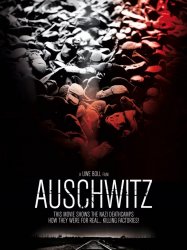
Auschwitz (2011)
, 1h13Directed by Uwe Boll
Genres Drama, War, Documentary, Historical
Themes Films about religion, Political films, Films about Jews and Judaism
Actors Uwe Boll, Alexis Wawerka
The film attempts to depict the harsh reality of the process inside the Auschwitz concentration camp by using brutal imagery. Book-ended by documentary footage as well as interviews with German teenagers about what they know about the Holocaust, Boll's intention is to show viewers just how depraved and sadistic life in the camp was.
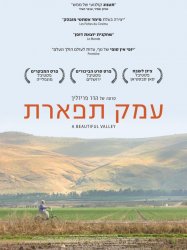
A Beautiful Valley (2011)
, 1h26Genres Drama
Themes Films about religion, Films about Jews and Judaism
Hanna Mendelssohn (Batia Bar), an elderly widow, is a proud founding member of her kibbutz and has devoted most of her life to its development. When it is threatened with bankruptcy and privatized, she is forced out of her job as the community's gardener, turning from a hardworking productive member of society into a dependent burden. Although she still believes in the values of social equality and cooperation that characterized the kibbutz in its early years, Hanna struggles to maintain her usefulness and sense of worth in a society undergoing a sudden and profound transformation.
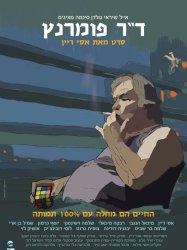
Dr. Pomerantz (2011)
, 1h28Directed by Assi Dayan (אסי דיין)
Origin Israel
Themes Medical-themed films, Films about religion, Films about psychiatry, Films about disabilities, Films about Jews and Judaism, Films about autism
Actors Assi Dayan (אסי דיין), Rivka Michaeli, Tzufit Grant
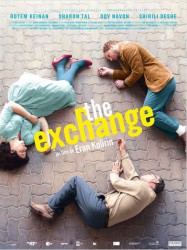
The Exchange (2011)
, 1h34Directed by Eran Kolirin
Genres Drama, Action
Themes Films about religion, Films about Jews and Judaism
Actors Sharon Tal
Oded (Rotem Keinan) is an assistant lecturer at the Tel Aviv University and married to Tami (Sharon Tal), a young architect looking for a job. Oded becomes friends with a neighbour, Yoav (Dov Navon), and they become obsessed with breaking pre-ordained frames and examining their lives objectively.

The Flat (2011)
, 1h37Directed by Arnon Goldfinger
Genres Documentary
Themes Films about religion, Documentary films about religion, Films about Jews and Judaism
Actors Axel Milberg
The film opens as the director and members of his family are gathered in the apartment of his mother's mother, Gerda Tuchler, a short while after her death, to clear out the contents. His grandmother lived in the same apartment for 70 years, ever since she and her husband, Kurt, left Nazi Germany in the 1930s and immigrated to Palestine.
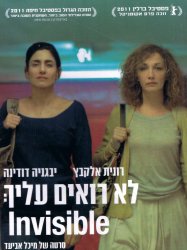
Invisible (2011)
, 1h30Directed by Michal Aviad
Genres Drama, Thriller
Themes Films about religion, Films about Jews and Judaism
Actors Ronit Elkabetz, Evgenia Dodina, Sivan Levy
Lily and Nira are brought together over a shared trauma; they were both victims of a serial rapist twenty years earlier. Together they begin to research the crimes and the fate of their perpetrator.

Looking for Moshe Guez (2011)
, 1h15Origin Israel
Genres Documentary
Themes Films about religion, Documentary films about business, Documentary films about the film industry, Documentaire sur une personnalité, Films about Jews and Judaism
Looking for Moshe Guez follows director Avida Livny as he searches for a childhood memory: his memories from the first Israeli horror film, The Angel Was a Devil, which he has seen once in the 1980s, as a 10-year-old. Having forgotten about the film, he "discovers" it again in a book by Meir Schnitzer concerning Israeli cinema, where it is described as "the worst film ever made in Israel".
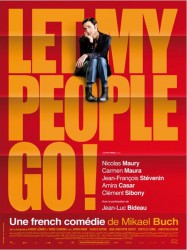
Let My People Go! (2011)
, 1h28Directed by Mikaël Buch
Origin France
Genres Comedy
Themes Films about religion, Films about sexuality, LGBT-related films, Films about Jews and Judaism, LGBT-related films, LGBT-related film
Actors Nicolas Maury, Carmen Maura, Jean-François Stévenin, Amira Casar, Clément Sibony, Aurore Clément
Ruben is a French-Jewish gay mailman is living in fairytale Finland (where he got his MA in "Comparative Sauna Cultures") with his gorgeous Nordic boyfriend. Just before Passover, a series of mishaps and a lovers' quarrel exile the heartbroken Reuben back to Paris and his zany family—including Carmen Maura as his ditzy mom, and Truffaut regular Jean-François Stévenin as his lothario father. Scripted by director Mikael Buch and renowned arthouse auteur Christophe Honoré, Let My People Go! both celebrates and upends Jewish and gay stereotypes.
 Connection
Connection
